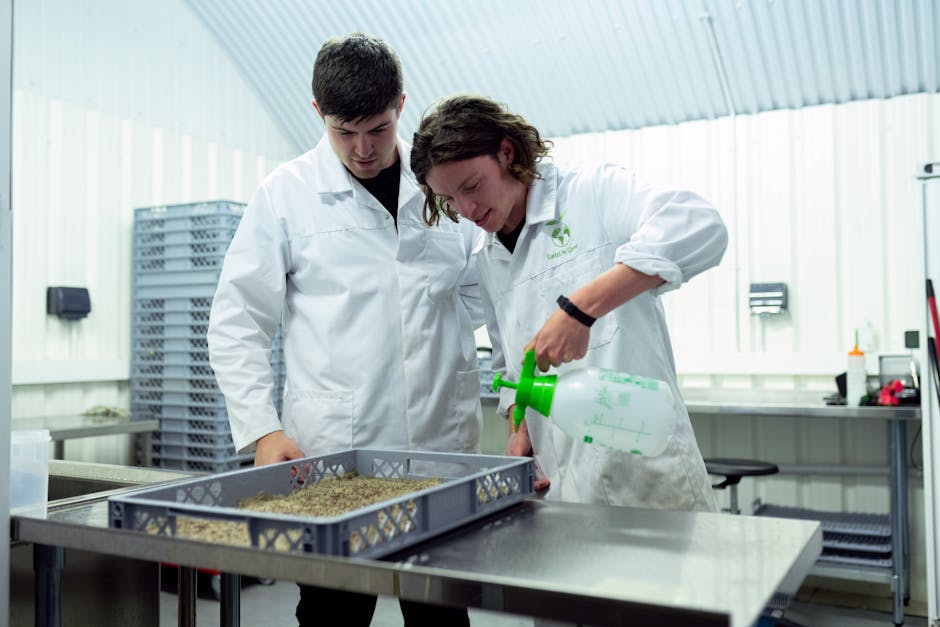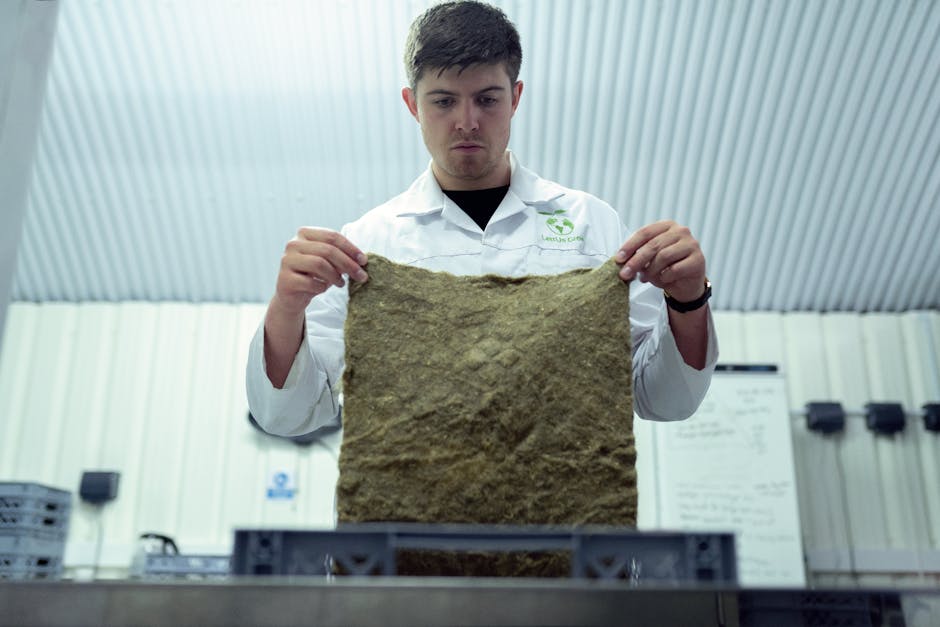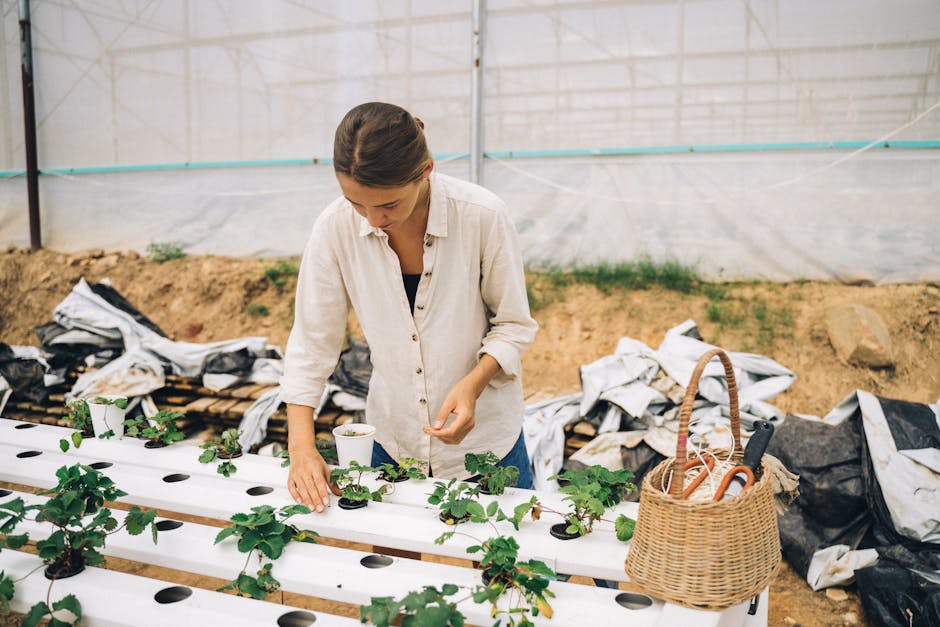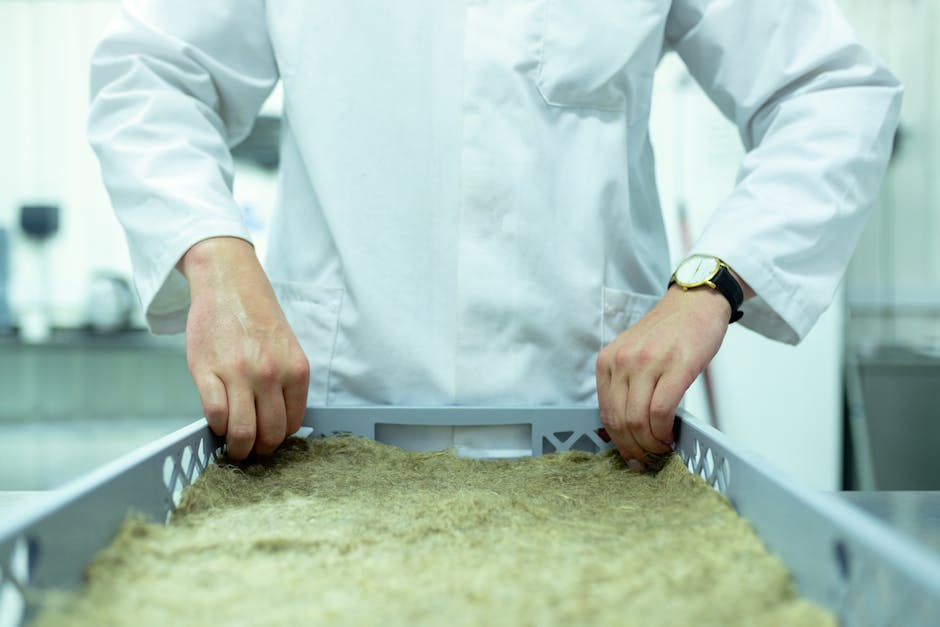The Science Behind Eco-Friendly Farming
Did you know that traditional farming methods can harm the environment? In fact, agriculture accounts for nearly 10% of greenhouse gas emissions in the United States alone. But theres good news! Eco-friendly farming practices can help us grow food while protecting our planet. Lets dive into the science behind these sustainable methods and discover how they benefit both farmers and consumers.
What is Eco-Friendly Farming?

Eco-friendly farming, also known as sustainable farming, focuses on producing food in a way that is good for the environment. Instead of using harmful chemicals and practices, eco-friendly farms work with nature. They aim to maintain healthy soil, conserve water, and protect biodiversity. But how do they achieve this?
How Does Eco-Friendly Farming Help the Environment?

Eco-friendly farming has several key benefits for the environment. Here are some of the most important ones:
- Reduces Chemical Usage: Instead of synthetic fertilizers and pesticides, eco-friendly farms use natural alternatives. This reduces pollution in our waterways and protects wildlife.
- Conserves Water: Many eco-friendly practices, like drip irrigation, help farmers use less water. This is crucial, especially in regions facing drought.
- Enhances Soil Health: Techniques like crop rotation and composting improve soil quality. Healthy soil is vital for growing nutritious food and storing carbon.
- Supports Biodiversity: By planting a variety of crops and maintaining natural habitats, eco-friendly farms encourage diverse ecosystems.
These practices not only protect the earth but also produce healthy food for consumers. But what exactly are some of these eco-friendly methods?
What Are Common Eco-Friendly Farming Practices?

Eco-friendly farming includes a range of practices. Here are some common methods:
- Organic Farming: This method avoids synthetic fertilizers and pesticides. Instead, it uses natural substances to nourish crops and control pests.
- Permaculture: Permaculture designs farming systems that work with nature. It focuses on creating a self-sustaining ecosystem.
- Aquaponics: This combines fish farming and plant growing. The fish waste provides nutrients for the plants, and the plants clean the water for the fish.
- Agroforestry: This involves planting trees alongside crops. The trees help improve soil quality and provide shade.
Each of these methods works to create a balanced system that benefits the environment. But how do these techniques impact the food we eat?
How Does Eco-Friendly Farming Affect Food Quality?

One of the biggest questions is whether eco-friendly farming produces food that is as nutritious as conventionally grown food. Research shows that organic produce can contain higher amounts of certain nutrients. Additionally, eco-friendly farming often leads to fresher food since it typically uses less processing.
Moreover, eco-friendly farms often grow food varieties that are better suited to local conditions. This can enhance flavor and nutritional value. Plus, when you eat locally grown food, you get the added benefit of supporting local economies.
Is Eco-Friendly Farming More Expensive?
Many people wonder if eco-friendly food is more expensive. The answer is, it depends. While some organic products may cost more due to higher production costs, there are several reasons why eco-friendly farming can save money in the long run:
- Reduced Input Costs: Eco-friendly methods often rely on natural resources, which can lower costs over time.
- Health Benefits: Healthier food can lead to fewer medical bills and better overall health.
- Environmental Savings: Sustainable practices can help reduce the cost of dealing with pollution and environmental damage.
So, while the upfront cost may be higher, the long-term benefits can outweigh these expenses. But how does eco-friendly farming relate to climate change?
Can Eco-Friendly Farming Combat Climate Change?
Absolutely! Eco-friendly farming can play a crucial role in fighting climate change. Heres how:
- Carbon Sequestration: Sustainable farming practices like cover cropping and reduced tillage help store carbon in the soil. This reduces the amount of carbon dioxide in the atmosphere.
- Reduced Emissions: By cutting down on chemical inputs, eco-friendly farms lower greenhouse gas emissions significantly.
- Resilience to Climate Change: Diverse farming practices make crops more resilient to extreme weather events. This means more stable food production even in changing climates.
By adopting these methods, farmers can help fight climate change while still providing food for the population. But how do we encourage more farmers to go green?
What Can Be Done to Support Eco-Friendly Farming?
Supporting eco-friendly farming involves several actions we can take as consumers:
- Buy Local: Purchase food from local farmers markets. This supports eco-friendly practices and reduces transportation emissions.
- Choose Organic: When possible, opt for organic products. This helps create a market for sustainable practices.
- Educate Yourself: Learn about farming practices and share what you know. Knowledge can empower others to make eco-friendly choices.
- Advocate: Support policies that promote sustainable agriculture and protect natural resources.
Every small action counts. When consumers demand eco-friendly products, farmers are more likely to adopt sustainable practices. But what do experts say about this shift?
What Do Experts Think About Eco-Friendly Farming?
Many agricultural experts advocate for sustainable practices. Dr. Jane Goodall, a renowned primatologist and conservationist, said, What you do makes a difference, and you have to decide what kind of difference you want to make. This quote highlights the importance of individual and collective actions toward a sustainable future.
Additionally, organizations like the United Nations emphasize the need for sustainable agriculture to achieve food security and combat climate change. They encourage farmers worldwide to adopt eco-friendly practices to ensure a healthy planet for future generations.
Conclusion: Embracing Eco-Friendly Farming
Eco-friendly farming is more than just a trend; it’s a necessary shift in how we produce food. By using sustainable practices, farmers can grow healthy food while protecting our planet. As consumers, we hold the power to support these efforts. Every time we choose eco-friendly products, we help pave the way for a sustainable future.
Remember, the next time you’re at the grocery store or farmers’ market, consider the impact of your choices. Together, we can create a healthier planet for ourselves and generations to come.
For more on this topic, check out the USDAs guide on sustainable agriculture and see how you can get involved.



